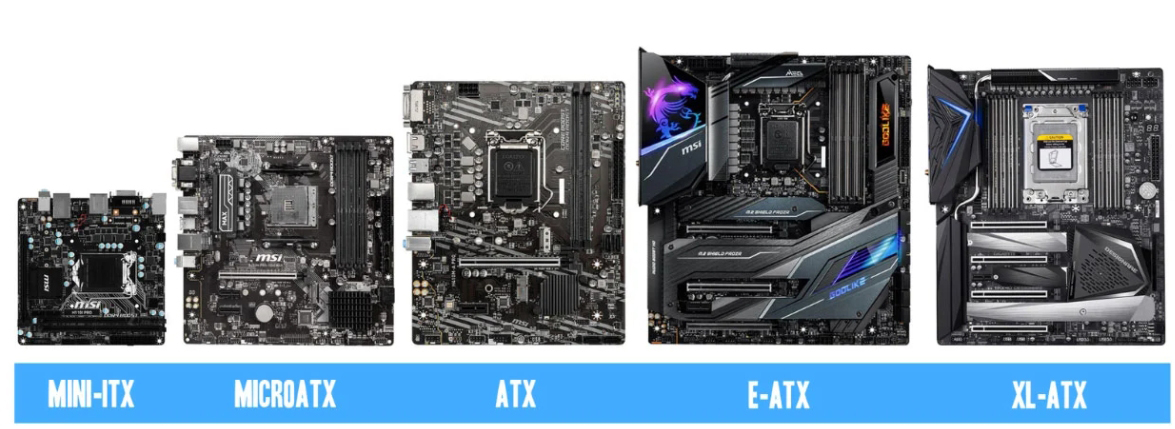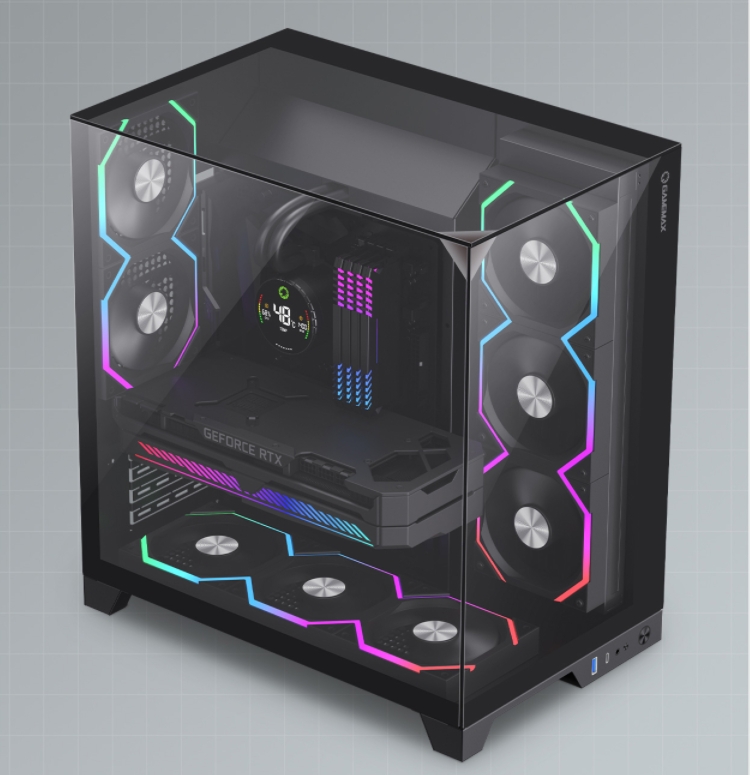When it comes to building a PC, one of the most crucial decisions you’ll make is selecting the right PC case size. The size of your PC case not only determines the overall look and footprint of your build but also impacts cooling, compatibility with components, and future upgrade options. With various sizes available, from the compact Mini ITX to the expansive Full Tower, understanding PC case sizes is essential for creating a build that meets your needs.
The size of your PC case affects several aspects of your build, including:
Component Compatibility: Larger cases generally support a wider range of components, including larger motherboards (like E-ATX), multiple GPUs, and extensive cooling solutions. Smaller cases might limit your choices but can still accommodate high-performance parts with the right planning.
Cooling and Airflow: Bigger cases tend to offer better airflow options due to the increased space for additional fans and larger radiators for liquid cooling. This is particularly important if you plan to overclock your CPU or GPU, as efficient cooling can make a significant difference in performance and longevity.
Aesthetics and Space: Your PC case is the visual centerpiece of your build. Whether you prefer a minimalistic, sleek look or a flashy, RGB-lit showcase, the size of the case plays a big role in the overall aesthetics. Additionally, consider where your PC will be located. A massive Full Tower might look impressive, but it could be overkill if you have limited desk space.
Ease of Build and Upgrade: Larger cases typically provide more room for cable management and easier access to components, making the building process smoother. They also offer more flexibility for future upgrades, allowing you to add more storage drives, larger GPUs, or additional cooling solutions without running into space constraints.

Let’s take a closer look at the different PC case sizes and what each offers:
Full Tower Cases
Full Tower cases are the largest available, typically standing over 22 inches tall. These cases are ideal for enthusiasts who want to build a high-end system with multiple GPUs, extensive liquid cooling, and plenty of storage drives. They can accommodate E-ATX motherboards and offer exceptional airflow and cooling options.
Pros:
Cons:
Takes up significant space
Generally more expensive
Heavy and less portable
Supports large motherboards (E-ATX, XL-ATX)
Ample room for multiple GPUs and extensive cooling
Excellent airflow and cooling potential
Easy to build in with plenty of space for cable management

Mid Tower Cases
Mid Tower cases are the most popular and versatile size, typically standing between 18 to 22 inches tall. They offer a good balance between size and features, supporting ATX and Micro ATX motherboards. Mid Towers provide enough space for most gaming builds, with room for multiple GPUs, sufficient cooling options, and several storage drives.
Pros:
Cons:
Less space than Full Towers for extreme builds
Can be cramped for complex liquid cooling setups
Supports ATX and smaller motherboards
Good balance of size, features, and price
Decent airflow and cooling capabilities
Wide range of options available

Mini Tower Cases
Mini Tower cases are compact and designed for space-saving builds. They typically support Micro ATX and Mini ITX motherboards, making them a popular choice for budget builds or small form factor PCs. While they offer fewer expansion options, Mini Towers can still house a powerful gaming rig with careful component selection.
Pros:
Cons:
Limited expansion and cooling options
Can be challenging to build in due to space constraints
Less airflow compared to larger cases
Compact and space-saving
Usually more affordable
Lightweight and easier to transport
Ideal for budget or entry-level builds

Mini ITX Cases
Mini ITX cases are the smallest PC case size, designed specifically for Mini ITX motherboards. These cases are perfect for ultra-compact builds where space is at a premium, such as home theater PCs (HTPCs) or LAN party rigs. Despite their small size, Mini ITX cases can still pack a punch with the right components.
Pros:
Cons:
Very limited expansion options
Challenging to manage heat and airflow
Building in Mini ITX cases requires careful planning
Extremely compact and portable
Unique and stylish designs available
Great for small spaces or specific use cases (e.g., HTPC)
Can still house high-performance component

To illustrate the importance of PC case size, let’s take a look at the GameMax Leader TG, a Full Tower case that exemplifies the benefits of a larger form factor.
The GameMax Leader TG is designed for those who demand the best in terms of space, cooling, and aesthetics. With its spacious interior, this Full Tower can accommodate E-ATX motherboards, multiple GPUs, and a comprehensive liquid cooling system. It comes pre-installed with ARGB fans, providing both superior airflow and stunning visual effects through its tempered glass panels.
The ample space in the Leader TG allows for easy cable management, reducing clutter and improving airflow, which is critical for maintaining optimal temperatures in high-performance builds. The side-opening glass panel adds convenience, making it easy to access internal components for upgrades or cleaning without the hassle of removing screws.
For gamers and enthusiasts who want a showcase build that offers maximum cooling potential and room for future upgrades, the GameMax Leader TG demonstrates why choosing the right PC case size is so important.
Selecting the right PC case size is more than just a matter of aesthetics; it’s about ensuring your build has the space, cooling, and expandability it needs to perform at its best. Whether you’re aiming for a compact Mini ITX setup or a high-performance Full Tower powerhouse, understanding the pros and cons of each case size will help you make an informed decision that suits your needs and preferences.